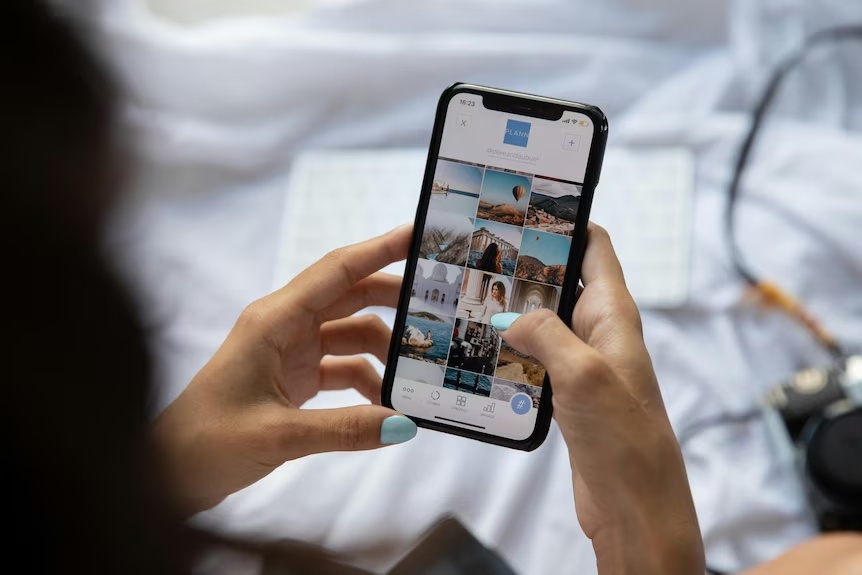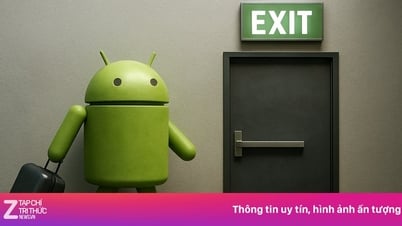 |
Throwing away your phone doesn't help you focus better. Photo: ABC News . |
With endless messages, notifications, and apps that block apps to help us focus, it's easy to think that our phones are the main source of distraction. But the problem is the people using them.
That's the conclusion of research published March 28 in the journal Frontiers in Computer Science , which found that people have many other ways to distract their attention even when they don't have their phones in hand.
If you want to cut down on social media and increase your daily productivity, putting your phone away isn’t enough, says Maxi Heitmeyer, a psychologist who has spent more than a decade researching how to use cameras to capture real-time interactions between people and machines.
The problem lies in how you use your phone.
In a previous study, Heitmeyer found that people tend to unconsciously pick up their phones even when there are no notifications or sounds. This time, he wanted to find out what happens when there are no phones.
His latest study involved 22 young working-age adults sitting in a workspace with a laptop and a phone. Half the time, the phone was out of reach.
The results showed that their leisure time and social media use did not change, except that it shifted from phones to computers. Dr. Heitmeyer concluded that the cause of distraction lies in the habits that people have formed through applications on their phones.
 |
The habit of opening your phone and accessing apps one by one in a certain order is the cause of distraction. Photo: Unsplash. |
“Instead of getting up to take a break, eat an apple or chat with someone, we get caught up in scrolling through social media and letting our attention be commercialized,” he said.
While the study has not been replicated on different groups of subjects, experts not involved in the study agree that our brains are being shaped by the myriad of apps competing for our attention.
Michael Moshel, a PhD candidate in clinical neuropsychology at Macquarie University, believes that because the content in phone apps is constantly changing (short videos, posts, messages, etc.), the brain has gradually become accustomed to switching attention continuously in a short period of time.
As a result, when we don’t use our phones, we still have trouble staying focused on tasks that require longer periods of time, like reading, working, or studying. In other words, our brains have adapted to “skimming” through information quickly instead of focusing deeply on something.
Consequences of prolonged distraction
The more distracted we are, the less time we have to absorb information, says Dr Mark Williams from Macquarie University.
“Every time you get distracted, you lose about 90 seconds"
Dr. Mark Williams
The ability to concentrate for a certain amount of time is important for many cognitive functions, including memory. If you constantly interrupt your attention, information will end up in working memory, which has limited capacity and is easily forgotten before it can be stored in the long term.
Just like when we read a book, we will need to read a passage again and again after losing focus. When we constantly switch from one thing to another, the amount of information we receive is also less.
 |
To stop yourself from being bored, paying attention to small habits is the solution to "quit" your phone. Photo: Pexels. |
Dr. Heitmeyer admits he is not anti-technology, but rather believes that digital devices like phones help us stay entertained and connected more quickly.
However, the tendency to pick up our phones when we are idle has been exploited by platforms to design algorithms, notifications, and addictive content to keep us hooked for as long as possible.
So with this study, he emphasizes the importance of being aware of small habits, like mindlessly checking your phone or constantly scrolling through social media. At the same time, this is a problem that does not stop at each individual, but requires a broader approach at the societal level.
Source: https://znews.vn/quang-dien-thoai-di-khong-phai-cach-giup-ta-tap-trung-hon-post1542017.html
























![[Photo] Thousands of Buddhists wait to worship Buddha's relics in Binh Chanh district](https://vphoto.vietnam.vn/thumb/1200x675/vietnam/resource/IMAGE/2025/5/3/e25a3fc76a6b41a5ac5ddb93627f4a7a)





































































Comment (0)